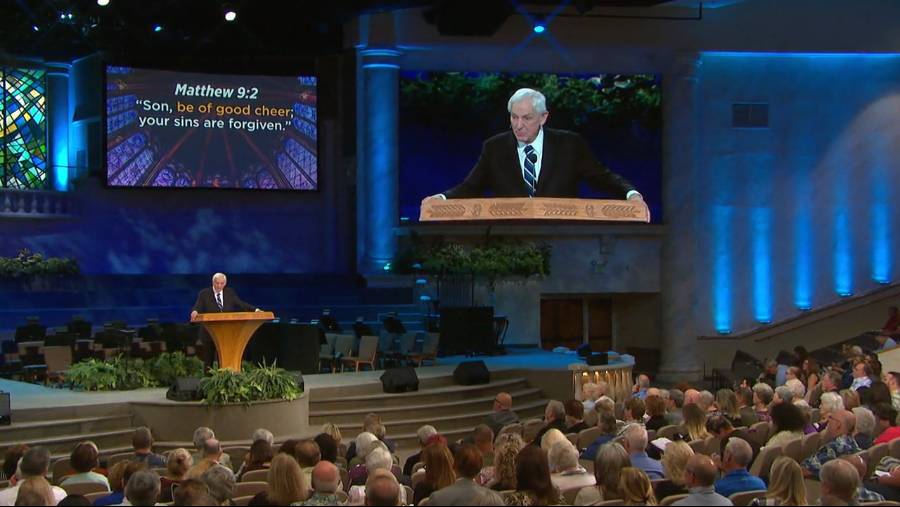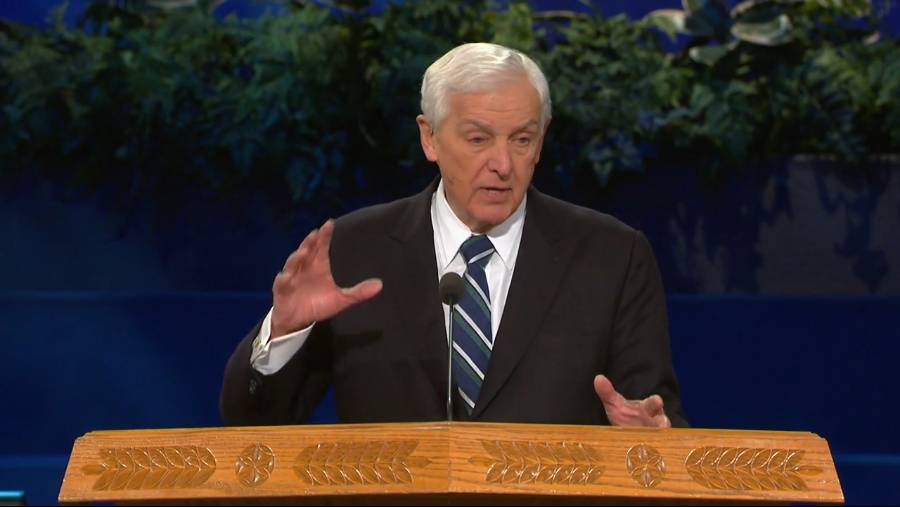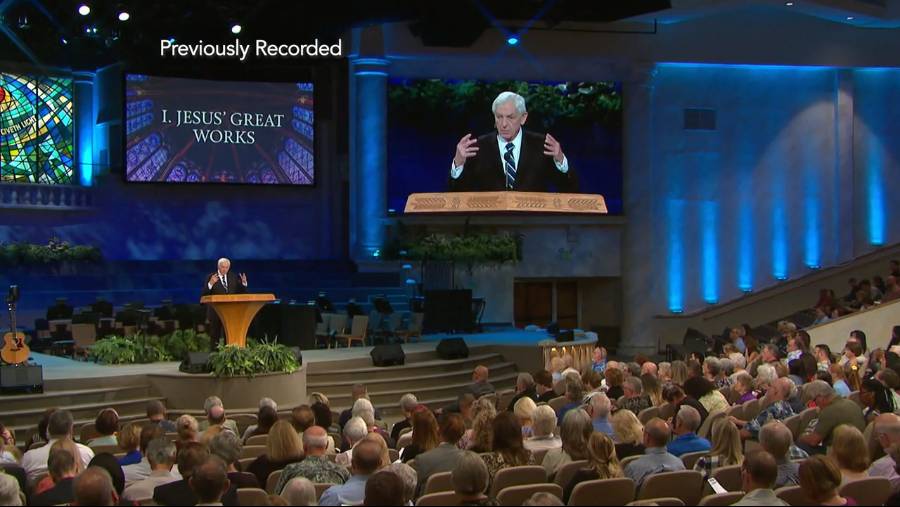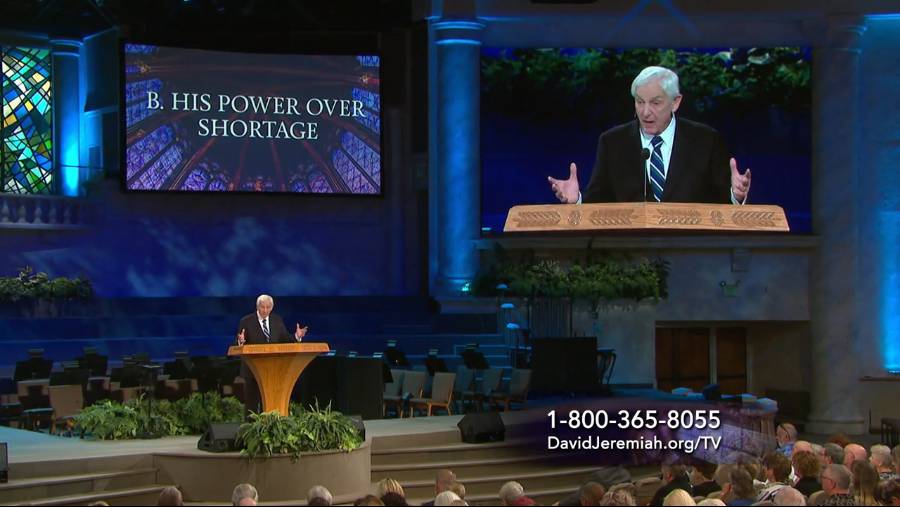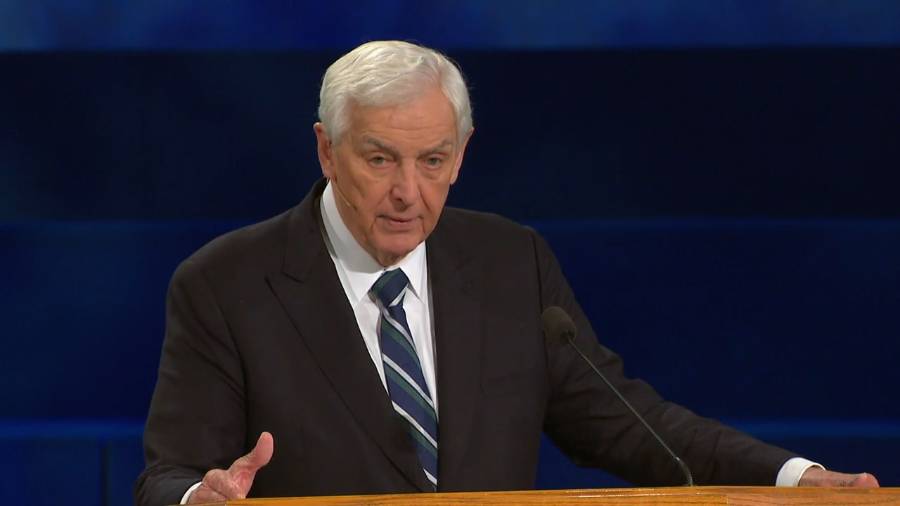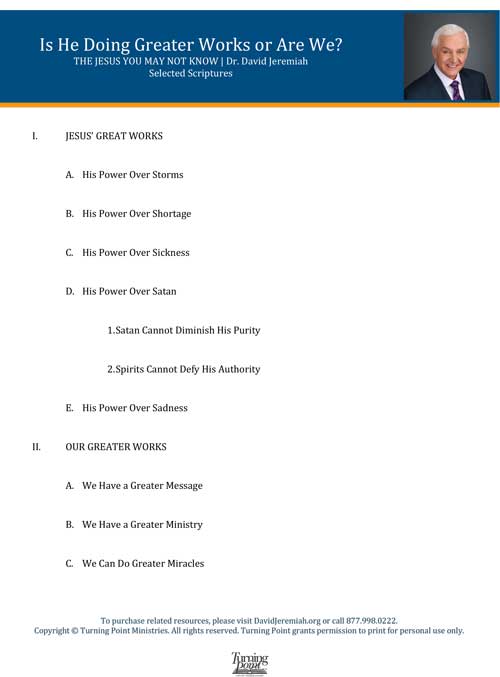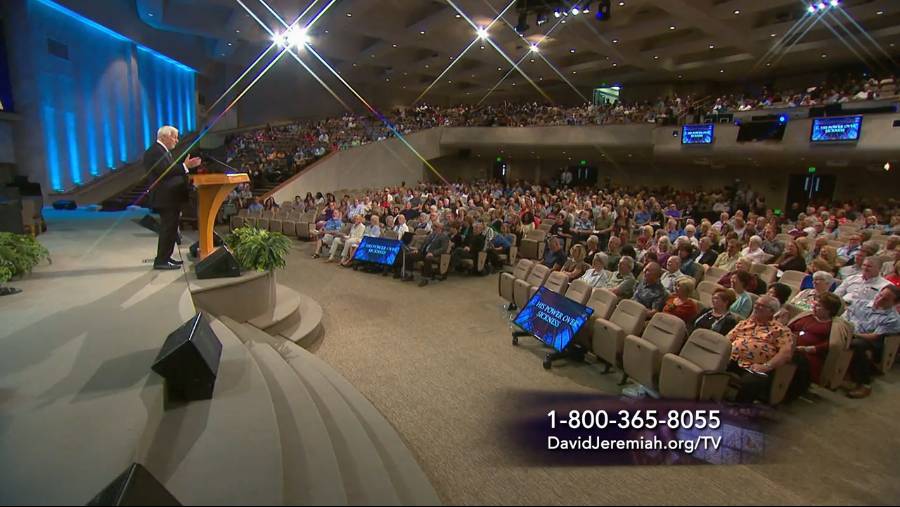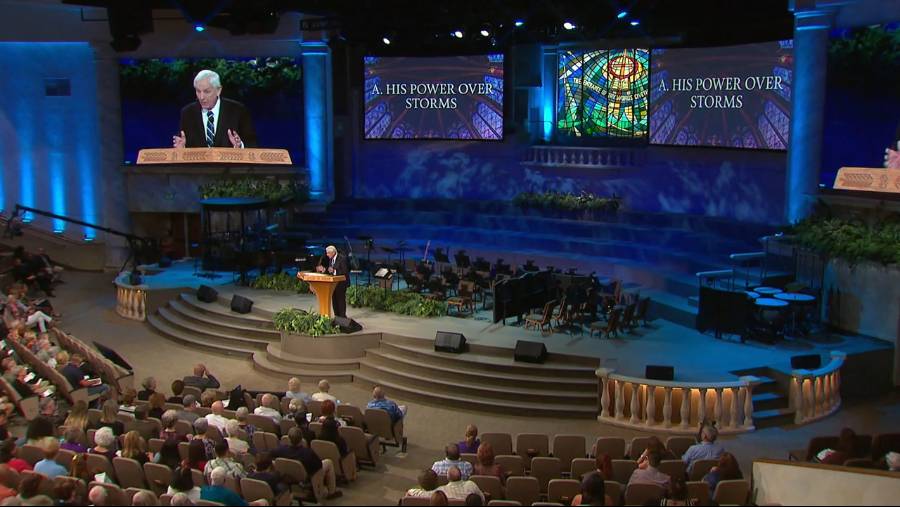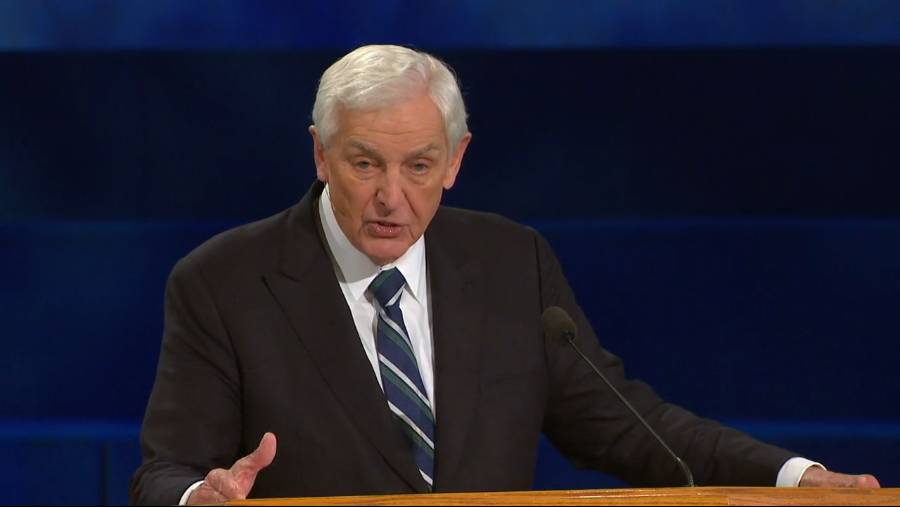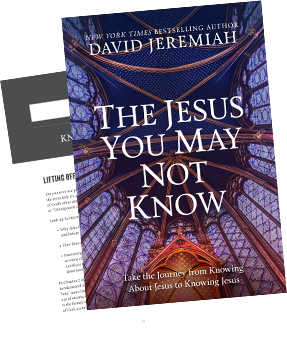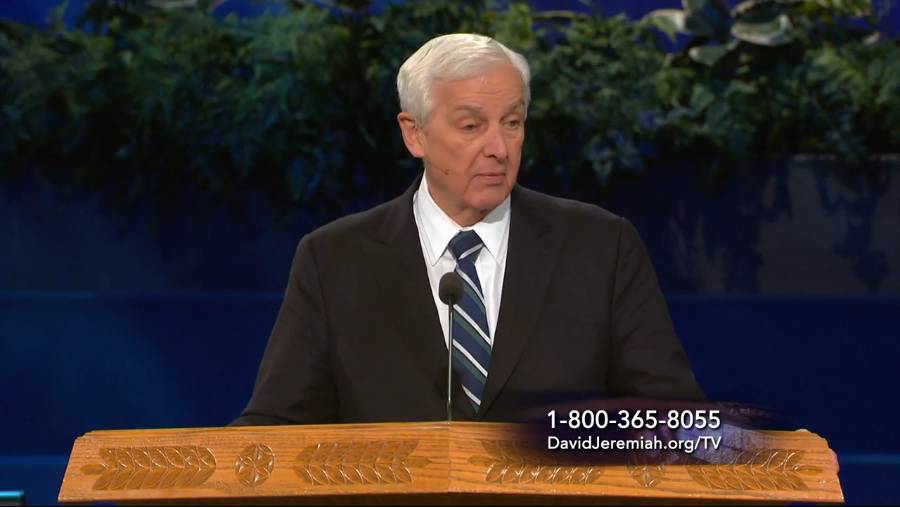The Jesus You May Not Know
Learn toFathomJesus like never before
Resources from David Jeremiah to aid in your journey from knowing about Jesus to knowing Jesus.
Is He Doing Greater Works or Are We?
Thanks for downloading your free resource!
Thanks for downloading your free resource!

Greater Works Academy: 4 Strategies for Maximum Effectiveness
By David Jeremiah
Ronald Reagan said, “Freedom… is never more than one generation away from extinction.”1 Christians have extrapolated that truth to say, “The Church is never more than one generation away from extinction.” Whether we are parents, grandparents, aunts, uncles, school teachers, or ministry volunteers, we have a common question burning in our hearts: How does our faith transfer from one person to another, generation to generation?
For our faith to live on after we die, it must exhibit certain qualities. Through the family of Timothy, the apostle Paul’s protégé, we discover at least four characteristics to emulate.
Model a Convincing Faith
I call to remembrance the genuine faith that is in you, which dwelt first in your grandmother Lois and your mother Eunice, and I am persuaded is in you also. 2 Timothy 1:5
Paul said Timothy’s “genuine” faith came from his mother and grandmother. The Greek word for “genuine” is found six times in the New Testament. James 3:17 renders the word “without hypocrisy.” Such faith is real, convincing, and deep.
If our faith is to blossom into the hearts of others, it needs to be without hypocrisy. We must prove our beliefs through our actions and sincerity.
We cannot impart a faith that we ourselves do not possess, and ultimately do not reflect.
Read Deuteronomy 6:6–9. How could you apply this passage to your own relationships?
Think about the word “diligently” in verse 7. What degree of diligence are you exercising as you mentor others?
Can you draw a spiritual application for the “hand” and “eyes” in verse 8?
What would be the spiritual advantage of having the Word of God posted on your doorpost and gate?
Model a Consistent Faith
Others learn about our faith by observing how we handle difficult situations. As they watch us navigate trials, they figure out whether or not we have a consistent faith. If we’re not careful, we can allow our faith to be fleeting rather than indwelling.
Paul said that Timothy’s genuine faith first “dwelt” in his grandmother Lois and in his mother Eunice (2 Timothy 1:5). Regardless of their circumstances, it inhabited their lives. Because Jesus Christ is the same yesterday, today, and forever, we, too, can demonstrate His indwelling presence amid life’s challenges.
Using a concordance, conduct a word study for “dwell.”
Make a list of all the Scripture references for that word.
Look up each verse and write down the context of the word “dwell,” along with any thoughts you want to remember.
If time permits, extend your list to include the derivatives of dwell: dweller, dwelling, dwells, dwelt.
How does your study of the word “dwell” impact your impression of Lois and Eunice’s faith?
Model a Contagious Faith
William Barclay once wrote, “A Christian is a man lost in wonder, love, and praise, at what God has done for him, and aflame with passion to tell others what God can do for them.”
Certainly, Lois and Eunice had such a passion. They couldn’t keep quiet about the Lord Jesus. As soon as Timothy was old enough, they started teaching him about faith. By living a contagious faith, these women reared a godly young man who “was well spoken of by the brethren who were at Lystra and Iconium” (Acts 16:2). Their faith trained him up from childhood and molded his character. Oh, to have such mentors!
From the moment they come into our lives, we must make sure that we model a contagious faith for the people around us.
How can you model a contagious faith? Consider incorporating these activities into your routine.
Visit a local nursing home each month.
Assemble supply kits for the homeless.
Create an album for your pastor or church leaders. Fill it with pictures of people who serve and ask those individuals to write a note to the recipient.
Adopt a missionary family. Send emails and holiday packages or hard–to–get items and write letters.
Help elderly neighbors with household tasks.
Model a Confident Faith
Faith was Paul’s ancient watchword, used incessantly in his writings. In his mind, faith meant to embrace Jesus Christ in all of His fullness. It was much more than a belief or a mental acceptance of the Gospel. In the words of Samuel Taylor Coleridge, “Faith is an affirmation, and an act, that bids eternal truth be present fact.”2
Such a confident faith is necessary to spread the Good News.
If we’re not sure of what we believe ourselves, how are we to make others certain of the love of Christ?
Project yourself into the future. What do you see? Is your faith convincing, consistent, contagious, and confident? Whose lives will have been changed by your faith?
Read 1 John 5:1–5, paying special attention to verse 2: “By this we know that we love the children of God, when we love God and keep His commandments.” Our love and obedience reveal our true loyalties, and they speak to the people around us. Do you bear the evidence of a believer?
1Ronald Reagan, speech given at the annual Convention of the Congressional Medal of Honor Society, New York City, December 12, 1983.
2Guy H. King, To My Son: An Expositional Study of II Timothy (Fort Washington, PA: Christian Literature Crusade, 1962), 16.
You Might Also Enjoy…
Thanks for downloading your free resource!
Thanks for downloading your free resource!







